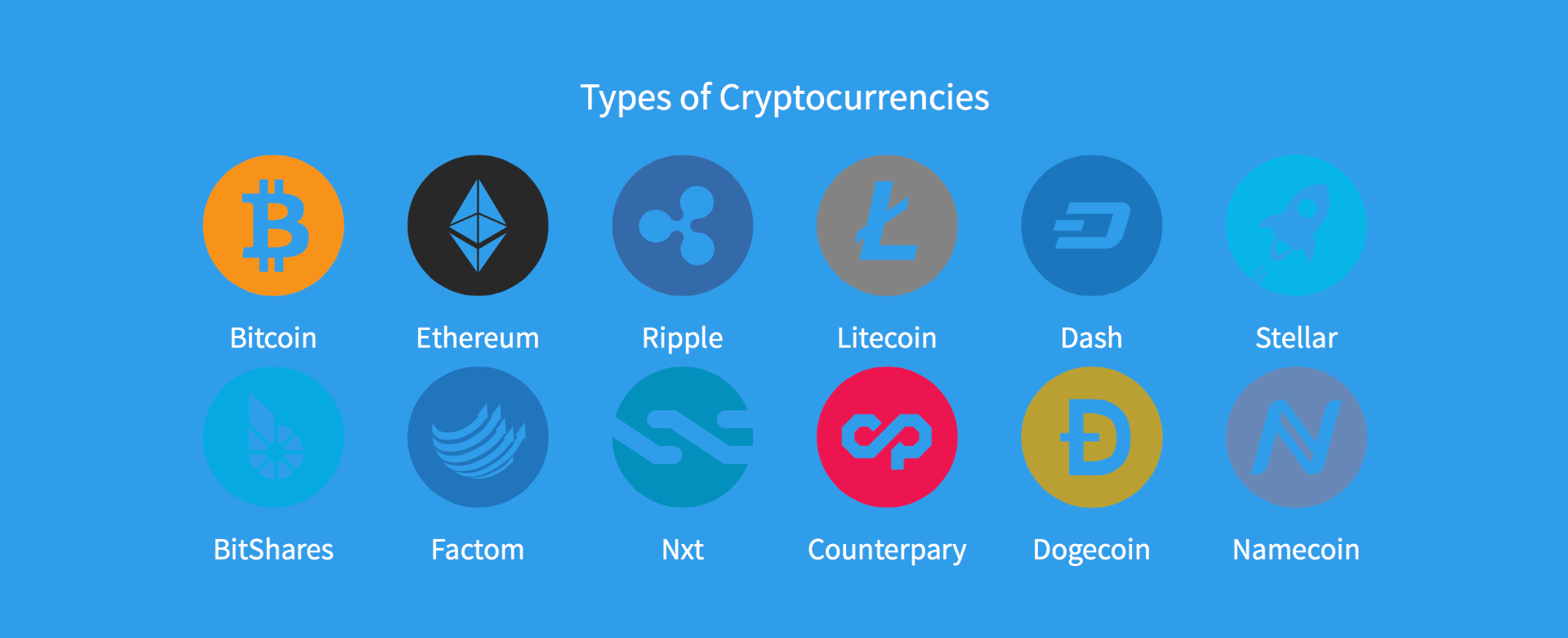CryptoCurrency?Explained.

Cryptocurrency is the next evolution of money.
We know that in ancient days, commodities essential to daily living were considered money (e.g. cows and chickens) and traded among micro-economies. Then the modernization of society and urban cities brought the need to track money and value across large territories of land, which resulted in the birth of paper and coin money issued from the ruling governments.
A quarter of a century ago, an invention called the world wide web made it possible for people to buy and sell virtually anything, to anyone around the world using bank-issued credit cards, which are a substitute for paper and coin issued currencies and provide electronic payment. Finally, several years ago, a new form of money that is native to the internet was born - cryptocurrency. Below we explore what this new type of money is, how it works, and how you can get involved.
A quarter of a century ago, an invention called the world wide web made it possible for people to buy and sell virtually anything, to anyone around the world using bank-issued credit cards, which are a substitute for paper and coin issued currencies and provide electronic payment. Finally, several years ago, a new form of money that is native to the internet was born - cryptocurrency. Below we explore what this new type of money is, how it works, and how you can get involved.

What is Cryptocurrency?
Cryptocurrency Definition:
A cryptocurrency (also called a crypto-asset or crypto money) is a medium of exchange like government issued currencies, that uses cryptography to secure the exchange of digital information and control the creation of new units.
Cryptocurrency Explained:
As alluded to in the introduction, cryptocurrency is simply the next evolution of money. As many things in our world transition to becoming digital, so will our money.
How Does Cryptocurrency Work?
Cryptocurrencies provide a viable method of issuing tracking ownership of unique digital representations of value, which we call money.
Cryptocurrencies are fully self-contained systems that both control and track each unit of cryptocurrency. Each individual unit acts like peice data moving around a network. Units of a cryptocurrency can be as small as $0.01 USDm or as big as $1 Billion USD. Some cryptocurrencies are controlled by a single entity (i.e. centralized) and others are controlled by the public (i.e. decentralized).

Cryptocurrencies use various timestamping schemes to avoid the need for a trusted third party to verify the transactions added to the blockchain ledger. Bitcoin, the most popular cryptocurrency, uses a Proof-of-work scheme, which is also known as Mining. Other cryptocurrencies achieve the same result with alternative approaches that are often labeled Consensus Protocols or Consensus Platforms.
What are the Best Cryptocurrencies?
If you have heard about cryptocurrencies, then you have likely heard of bitcoin.
Bitcoin is the first cryptocurrency to successfully prove the viability of a cryptographic-backed public money supply that is open to anyone. From a market capitalization point of view and public adoption point of view, bitcoin is currently the most popular cryptocurrency. However, there are close to 1,000 different types of cryptocurrencies currently available on coin market cap, the most popular place to discover and track cryptocurrency prices. Among the many choices available, different cryptocurrencies provide different benefits over others. Some cryptocurrencies such as Litecoin provide faster confirmation times than bitcoin. Newer cryptocurrencies such as ether, refer to themselves as crypto assets and use their native token ether to power a decentralized virtual machine that can execute peer-to-peer smart contracts. Just like when shopping for a new smartphone, the best cryptocurrency is the one that fits your specific need that you intend to use it for.
Examples:


How to Invest In Cryptocurrency?
When bitcoin was first introduced to the world in 2009, each bitcoin was valued at less than $1 USD for quite some time. In late 2014, one bitcoin was valued over $1,000 USD. The current price of one bitcoin is about half of that, with varying degrees of volatility.
Hoping to strike it rich with short timelines and significant returns has caught the attention of speculators worldwide, causing great desire to learn how to invest in cryptocurrencies and yield returns that beat the stock market. The cryptocurrency market is only less than a decade old and still remains very small in comparison to the global financial markets of the world. These attributes (nascency and size) should remind investors to revisit a fundamental rule of investing: the higher the return, the greater the risk; the lower the return, the lesser the risk.
Cryptocurrency Investing Principle
Seeking to achieve the same returns seen with bitcoin during the 2009 to 2014 time period requires significant risk.
Higher Risk = Higher Return
An example of a high risk and high return cryptocurrency investment opportunity is to invest in a new cryptocurrency, with the anticipation that it achieve the same success as bitcoin.
Lower Risk = Lower Return
For those seeking a lower risk cryptocurrency investment opportunity, an example may include investing in a more mature cryptocurrency such as bitcoin that may not provide the same upward spike in value again, but may likely experience more natural and gradual growth over time.
An alternative to investing in cryptocurrencies, is investing in the underlying technology of cryptocurrencies, better known as blockchain technology.
Where to Buy Cryptocurrency?
Cryptocurrencies can be bought at many online providers, however, before you purchase cryptocurrency, make sure that you have a plan on how to store it in a cryptocurrency wallet. Most first time buyers often find the process of buying cryptocurrencies to be somewhat difficult, yet rewarding. Buying cryptocurrency through several of the exchanges online below can be done using a credit card or debit card.
Examples:

Where to Trade Cryptocurrency?
rading cryptocurrency is different from buying cryptocurrency. Although many of the places to buy cryptocurrency online, also provide trading services, the two acts are fundamentally different in nature. The industry of cryptocurrency trading is also beginning to mature and exchanges are providing more powerful tools that closely resemble the same market trading tools commonly found in the capital markets.
Why were cryptocurrencies invented?
Technically, the idea of an electronic peer-to-peer currency was being tinkered with decades ago, but it wasn't truly successful until 2008, when bitcoin was conceived. The basis of bitcoin's creation, and all virtual currencies that have since followed, was to fix a number of perceived flaws with the way money is transmitted from one party to another.
What flaws? For example, think about how long it can take for a bank to settle a cross-border payment, or how financial institutions have been reaping the rewards of fees by acting as a third-party middleman during transactions. Cryptocurrencies work around the traditional financial system through the use of blockchain technology.

IMAGE SOURCE: GETTY IMAGES.
OK, what the heck is blockchain?
Blockchain is the digital ledger where all transactions involving a virtual currency are stored. If you buy bitcoin, sell bitcoin, use your bitcoin to buy a Subway sandwich, and so on, it'll be recorded, in an encrypted fashion, in this digital ledger. The same goes for other cryptocurrencies.
Think of blockchain technology as the infrastructure that underlies virtual coins. It's the foundation of your home, while the tethered virtual coin represents all the products built on top of that foundation.
Why is blockchain a potentially better choice than the current system of transferring money?
Blockchain offers a number of potential advantages, but is designed to cure three major problems with the current money transmittance system.
First, blockchain technology is decentralized. In simple terms, this just means there isn't a data center where all transaction data is stored. Instead, data from this digital ledger is stored on hard drives and servers all over the globe. The reason this is done is twofold: 1.) it ensures that no one person or company will have central authority over a virtual currency, and 2.) it acts as a safeguard against cyberattacks, such that criminals aren't able to gain control of a cryptocurrency and exploit its holders.
Secondly, as noted, there's no middleman with blockchain technology. Since no third-party bank is needed to oversee these transactions, the thought is that transaction fees might be lower than they currently are.
Finally, transactions on blockchain networks may have the opportunity to settle considerably faster than traditional networks. Let's remember that banks have pretty rigid working hours, and they're closed at least one or two days a week. And, as noted, cross-border transactions can be held for days while funds are verified. With blockchain, this verification of transactions is always ongoing, which means the opportunity to settle transactions much more quickly, or perhaps even instantly.

IMAGE SOURCE: GETTY IMAGES.
How are transactions verified on a blockchain?
You might be wondering how these blockchain transactions are verified. After all, there are logistics involved, such as making sure that the same virtual coin isn't being spent twice. Often this verification falls onto a group of folks known as "miners."
Cryptocurrency miners are nothing more than people with high-powered computers who are competing against other people with high-powered computers to solve complex math equations. These equations are a product of the encryption designed to protect transaction data on the digital ledger.
The first miner to solve these equations, and in the process verify transactions on the ledger, gets a reward, which is known as a "block reward." This reward is paid out in virtual coins, and is an example of how bitcoin transactions are verified. This process is referred to as "proof of work."
The only other major verification process in place is known as "proof of stake." Instead of having people use tons of resources trying to solve complex equations to verify transactions, the proof of stake model chooses who gets to verify the next block of transactions based on their ownership in a virtual currency. In essence, the more you own, the better chance you have of getting to verify transactions. With proof of stake, there is no competition among your peers and no excessive energy usage while solving complex equations, which can make it much more cost-effective.
The proof of stake model also rewards those folks who verify transactions differently. Instead of being paid in virtual coins, the stakeholder earns the transaction fees tied to that block of transactions.

IMAGE SOURCE: GETTY IMAGES.
Are blockchain networks public or private?
The interesting thing is that blockchain has the opportunity to be public or private. As you might imagine, a private blockchain would appeal most to businesses, while public blockchains are most appealing to consumers who might want to use their virtual currency to buy goods or services, or to cryptocurrency investors.
A private blockchain, just as it sounds, allows a business to place restrictions on who has access to data, and who can make transactions on the network. Meanwhile, public blockchains allow anyone to join and participate. Bitcoin is an example of a public blockchain.
Is it true that cryptocurrency transactions are anonymous?
The answer to this is, "it depends." Most cryptocurrencies aren't as anonymous as you'd think. Sure, you don't have to supply your Social Security number or bank account to begin trading or investing in cryptocurrencies, but any transaction you make is still going to be recorded in the underlying digital ledger.
Recently, the Internal Revenue Service (IRS) won a court case against cryptocurrency exchange Coinbase that required the exchange to turn over information on 14,355 users who, between 2013 and 2015, exchanged at least $20,000 worth of bitcoin. While the IRS primarily sought this info to go after possible capital-gain tax evaders, the bigger idea here is that these transactions aren't as anonymous as you'd think.
There is, however, a group of cryptocurrencies known "privacy coins" that have a sole purpose of beefing up the anonymity and privacy of a transaction. They use specialized protocols to help hide the identity of the sender of a payment. Monero and Dash are examples of coins that belong to this specialized group.

IMAGE SOURCE: GETTY IMAGES.
How do virtual coins fit into all of this?
As noted, digital currencies are what investors are buying. In nearly all instances, buying a cryptocurrency won't give an investor any ownership in the underlying blockchain technology. This happens to be one of the biggest differences between cryptocurrencies and traditional investments, like stocks. If you buy stock in a publicly traded company, you own a fractional percentage of that business. That's not the case with nearly all cryptocurrencies.
So, what do the virtual coins do exactly? In many instances, the coins are required to pay for transactions fees on a blockchain. Ethereum, which is one of the largest cryptocurrencies by market cap behind bitcoin, requires users of its blockchain to pay transaction fees in its coin, known as Ether. But there are other potential applications.
For example, Ripple's coin, known as the XRP, may serve as an intermediary that'll allow transactions to settle faster. Ripple is a blockchain company that's focused on partnering with big banks and financial institutions. Imagine that a customer in Japan wants to make a payment to a business in the U.K. If this payment were routed through Ripple's blockchain, it could take the payment in Japanese yen, convert that payment into XRP coins, then convert those coins into British pounds. All of this could theoretically be done instantly, or at the very least considerably faster than traditional banks (and hopefully for a lower cost).
How should cryptocurrencies be valued?
Truth be told, no one knows the answer to this, because it's dependent on a number of factors. These include:
- How quickly blockchain technology is adopted by bigger businesses;
- How quickly merchants are willing to accept virtual currencies as a form of payment;
- Whether governments around the world will accept cryptocurrencies as legal tender, or choose to ban them entirely.
It's also unclear at times how cohesive a virtual coin and its underlying blockchain are. The example above involving Ripple's blockchain and its XRP shows how the two work pretty well hand-in-hand. Not all cryptocurrencies have a coin that has a clear-cut use or enhances the value of its underlying blockchain. This is why valuing cryptocurrencies often proves difficult.

IMAGE SOURCE: GETTY IMAGES.
Why have cryptocurrencies gone up so much?
Again, there's no 100% correct answer here, but the key in their success remains two factors. First, retail investors (i.e., non-professional investors) have accounted for most virtual currency trading. Institutional investors have kept to the sidelines because either their company won't allow them to invest in cryptocurrencies, or they're simply too volatile to merit an investment. Retail investors tend to be more reliant on their emotions relative to institutional investors, leading to moves that tend to overshoot to the upside, and downside.
The second factor is that this isn't exactly a "fair" market. Among traditional equities, like the stock market, an investor has the opportunity to buy, sell, and even bet against an equity. Money can be made if an equity moves up or down. With nearly all cryptocurrencies, except bitcoin, buying or selling is the only option. There is no way to make money if a cryptocurrency goes down, which naturally tends to incentivize buying. This probably won't last forever, but it's played a key role in pushing prices higher.
Bitcoin is overhyped: 10 better buys for you nowWhen investing geniuses David and Tom Gardner have a stock tip, it can pay to listen. After all, the newsletter they have run for over a decade, Motley Fool Stock Advisor, has tripled the market.*
David and Tom just revealed what they believe are the ten best stocks for investors to buy right now... and investing directly in Bitcoin was noticeably absent from their recommendations! That's right -- they think these 10 stocks are better buys.

No comments:
Write comments